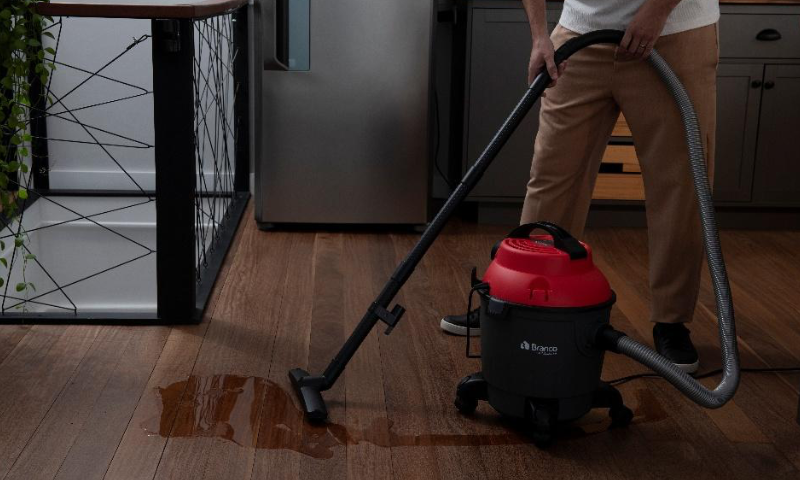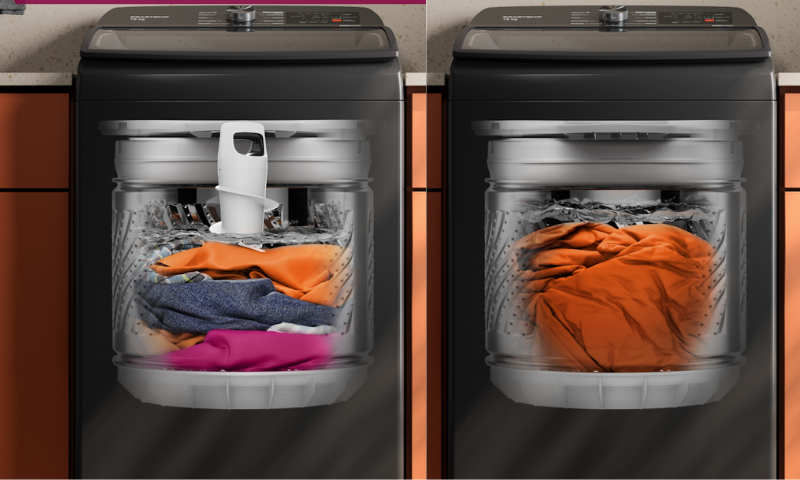
Armazém Paraíba: WELL MADE PURCHASE AND FAST DELIVERY:THIS IS THE CONSUMER’S DESIRE
The name Armazém Paraíba is a tribute to the founders, João Claudino Fernandes and Valdecy Claudino, to their homeland. When they opened the furniture and home appliances store in July 1958 in Bacabal, a city 240 kilometers from São Luís, capital of the State of Maranhão, the father and uncle of the current CEO, João Claudino Fernandes Júnior, took to the new business the hospitality of Paraíba and the will to progress. “The name “armazém” (warehouse) suggested assortment, stock, and large companies”, says the executive.
The store was the embryo of the Grupo Claudino, made up of 16 companies, which, last year, had gross revenues of over BRL 3 billion. Armazém Paraíba currently has more than 500 stores in seven states: Piauí, Maranhão, Ceará, Pernambuco, Bahia, Tocantins and Pará. The points of sale serve more than 350 cities. Even with the challenges that retail has gone through in recent years, the network has grown. In 2022, its gross revenue was BRL 1.7 billion, and the estimate is to reach BRL 2 billion in 2023.
The good performance, 65 years after its foundation, is directly linked to the constant approach of its consumers and the quick adaptation to the changes that occur in the segment. “Their satisfaction is our main objective. We are always looking for the best ways to make you feel welcomed when purchasing our products. In the store, consumers must feel as if they were in their own home”, says João Claudino Fernandes Júnior, in this exclusive interview for Eletrolar News.
by Leda Cavalcanti

How did Armazém Paraíba grow?
João Claudino Fernandes Júnior – In 1968, ten years after opening the store in Bacabal (MA), the brothers João Claudino and Valdecy Claudino moved their business headquarters to Teresina, the capital of Piauí, a city strategically located between the North and Northeast regions, which remains until today as the headquarters of the stores and the Grupo Claudino.
When did the diversification of activities begin?
JCFJ – Even when activities were concentrated in Maranhão and Piauí, João and Valdecy felt the need to provide better service, both in terms of product quantity and diversity. There was also a need for greater availability of mattresses, clothing, and small appliances. And, based on these aspirations, diversification took place gradually, initially to meet the needs of the Armazém Paraíba stores.

Can you exemplify how this happened?
JCFJ – For example, clothing and fabrics were big sellers at the company. Then, in 1970, the idea of creating a clothing factory, Guadalajara, came up. In 1976, the idea of making a mattress factory, Socimol. Immediately afterwards, Valdecy Claudino decided to invest in Metidieri, for the manufacture of fabrics, in the State of São Paulo. The investments were also made to more distinct branches, such as Construtora Sucesso (construction company), due to the need to build the stores at Armazém Paraíba with better quality and agility, and Gráfica (print shop) e Editora Halley (publisher), because we made many items for control purposes and, in the region were not found compatible printing systems.
Was Armazém Paraíba, then, the starting point?
JCFJ – In general, the companies emerged to provide support for products and services for Armazém Paraíba and, over the years, gained scale and recognition, began to serve state, regional and national customers, such as the Houston and audax. Houston, created in 1998, was the first factory in the Northeast to produce bicycles. In 2015, we created another one, Audax, in Manaus (AM), with higher value-added products.
In which area of activity does each Grupo Claudino company operate?
JCFJ – The group comprises 16 companies: Armazém Paraíba (retail), Socimol (mattresses and furniture industry), Onix Colchões, Teresina Shopping, Sucesso (construction company), Sucesso Publicidade, Frigotil (coldhouse plant), Remanso (mining company), Colon (road equipment), Onix (foam mattress industry), Guadalajara (clothing industry), Audax and Houston (bicycle industries), Mineração Alvorada, Halley (printing, publishing and cartoning) and JCF (furniture and livestock enterprises).

What was Grupo Claudino’s revenue last year?
JCFJ – The group had gross sales more than BRL 3.5 billion, and we expect this year to grow between 5% and 10%, with the awareness that some segments will develop more than others, as is already common in the market.
And the Armazém Paraíba? What is your average growth/year?
JCFJ – The last few years have been challenging for Brazilian retailers, but we can say that after Covid-19, which affected the economy around the world, we had good growth from 2021 to 2022, an exceptional year. Armazém Paraíba had gross sales of BRL 1.7 billion. For 2023, we aim for a growth of at least 10% for Armazém Paraíba, and estimated revenue is BRL 2 billion.
How many employees does Grupo Claudino have? And the Armazém Paraíba?
JCFJ – At the Claudino group, we currently have approximately 25,000 direct and indirect employees. At Armazém Paraíba, there are 8,200 CLT employees, duly hired. At the beginning, if Dad and my uncle were here, they would certainly answer “it was us, Valdecy and João”. Then they brought those who would truly contribute, they were few, I would say one or two dozen at the most, in the first store, in Bacabal.

What products does the chain offer?
JCFJ – Since the beginning, Armazém Paraíba has focused on product diversity, except for those in the food and cleaning sectors. We are a department store chain, and the best-selling products are currently home appliances, white and brown goods, and small appliances. Gradually, we have expanded our stores to accommodate the furniture sector, in addition to cell phones and computers, clothing and footwear, underwear and bed, table and bath.
In sales, which are the most representative?
JCFJ – We can mention the white line, furniture, and brown line, with very similar percentages. In addition to them, the bicycle segment, which began its history within Armazém Paraíba, at the time when it was one of the most desired means of transport.
What is the average store size? Do they all follow the same pattern?
JCFJ – Armazém Paraíba has stores of different sizes. In small towns we have stores from 120/130 m². In cities with stores that have a more complete line of products, such as home appliances, cell phones, bed, table and bath, clothing and footwear, the footage varies between 2,500 m² to 6,000 m². Our largest store has 10,000 m² and is in Teresina Shopping, in the capital of Piauí. Today, we have more than 500 stores, most of them owned, in more than 350 cities in the states of Piauí, Maranhão, Ceará, Pernambuco, Bahia, Tocantins and Pará. We also have 28 warehouses, distributed among the states where we are present.
What factors make Armazém Paraíba successful?
JCFJ – I believe it is a set of factors that would make any retail chain successful. Factors that were built and improved over all these decades and passed on to employees and those who oversee all our projects.

How do you evaluate the 65 years of Armazém Paraíba?
JCFJ – As in personal life, the professional trajectory has good and bad phases. The brothers opened a store and, as success grew, they crossed borders, targeting medium and small towns, always seeking closer ties with customers. We never gave up on that. We grow gradually. The opening of e-commerce has also brought us closer to younger people. Reaching the age of 65 with financial health and great expansion in the last three years deserves celebration.
In those years, what were the main changes that the chain went through?
JCFJ – All retail chains in Brazil had to adapt to the various phases of economic change and modernity. With us it was no different. Since the early 2000s, we have been providing our customers with increasingly well-structured and well-located store environments, offering very high-quality products, combined with comfort and good service. For us, who serve the North and Northeast, the comfort of air-conditioned stores was of fundamental importance. More efficient logistics made it possible for the consumer to quickly receive the product that he might not have taken with him. To this day, offering proper treatment to customers is our priority. From the smallest to the largest, the stores undergo constant improvements, from structure to service.
What actions and strategies differentiate the company?
JCFJ – I strongly believe that it is the continuity of being present to the public, regardless of the size of the city. We found that from managers to assemblers there is a desire to offer quality service, a moment of customer satisfaction, which extends to after-sales service. We ensure that the entire cycle, from entering the store to purchasing the product, guarantees us a good rate of return, making this relationship increasingly fruitful and reciprocal.

How do you see the trajectory of retail in the future? Is it difficult to be a retailer in Brazil?
JCFJ – Any branch of activity has its challenges. And they can be overcome the greater the preparation and dedication of the team. Time is a preponderant factor for the success of any activity. Nowadays, we must be attentive to resolve issues as soon as possible to achieve good results. The more integrated the teams are and attuned to the technologies that are here to stay, the more efficient they will be, both in physical and digital stores.
In which areas has Armazém Paraíba invested the most in recent years?
JCFJ – A good part of the investments has been in medium and small cities, both in physical and digital formats. Armazém Paraíba has always believed in its structure of staying ever closer to cities that compensate for the installation of a physical store. The implementation of e-commerce was a great victory, and in this format, we work where we have physical stores to maintain the level of quality and security, guaranteeing a well-made purchase and fast delivery.

When was the chain’s digital platform born?
JCFJ – In 2020, we already had a digital platform project for e-commerce, which would be available in three/four years. With the pandemic, in just over a year we had our platform ready to operate in the surrounding regions of large centers. For us, it is essential to increase and integrate digital with the physical store. We exclusively offer products that we have available in our stores. We are not a marketplace.
How does the logistics work?
JCFJ – We have our own specialized fleet, which serves according to the size and demands of cities. Today, we have more than 350 own vehicles spread across the points of sale to serve our customers.
Does the company have its own credit loan and financing?
JCFJ – Yes, for decades Armazém Paraíba has focused on installment plans and its own financing. Therefore, it has leveraged its sales at a time when a large part of the population is indebted. We believe that the proximity we have with our customers allows us to carry out a detailed and assertive analysis of the credit we grant.
What differentiates street stores from those in shopping malls?
JCFJ – Today, we only have one store in a shopping mall. It is located at Teresina Shopping, one of the Grupo Claudino developments, in Teresina (PI). It is our largest store, with more than 10,000 m² and products from all the categories we work with. In most municipalities where we operate, shopping malls do not exist, which is why we opted for street stores.
Does the company practice multichannel?
JCFJ – Yes, but not in all stores. It is already possible to buy on the website and withdraw in the store. In this scheme, we are in 90 cities, with 118 points of sale and learning a lot with digital, improving service and understanding how to get to know customers. Thus, we serve your choices.

How do you see the coexistence between the physical store and e-commerce?
JCFJ – Arguably, they are complementary. Recent experiences, before and after Covid, have increasingly demonstrated the integration of the two modalities. By having the option to choose, the customer will be served in the best possible way, according to their needs and with the certainty that the experience, both digital and physical, will be exceptional.
Does the chain have plans to expand the number of stores and enter other states?
JCFJ – For sure. Since 2022, we have been making expansions and improvements in existing stores and we will continue in 2023. Our expectation for this year, between store openings and improvements, is to reach 35 locations. The place where we plan to enter more deeply is Pará, where we have already opened the first store in the southwest of the state. And, keeping the particularities and culture of Armazém Paraíba, we are going to open stores in small and medium-sized municipalities in the same region.
What are the advantages of regional retail?
JCFJ – My father believed that small and medium-sized cities provided a greater challenge, demanding more commitment and assertiveness from the stores. The smaller the city, the greater the bond and consideration of the population. It is not easy to build this, but all the training and way of working, including fast deliveries, fleet, and furniture assembly, are recognized.

Source: Eletrolar News #155





